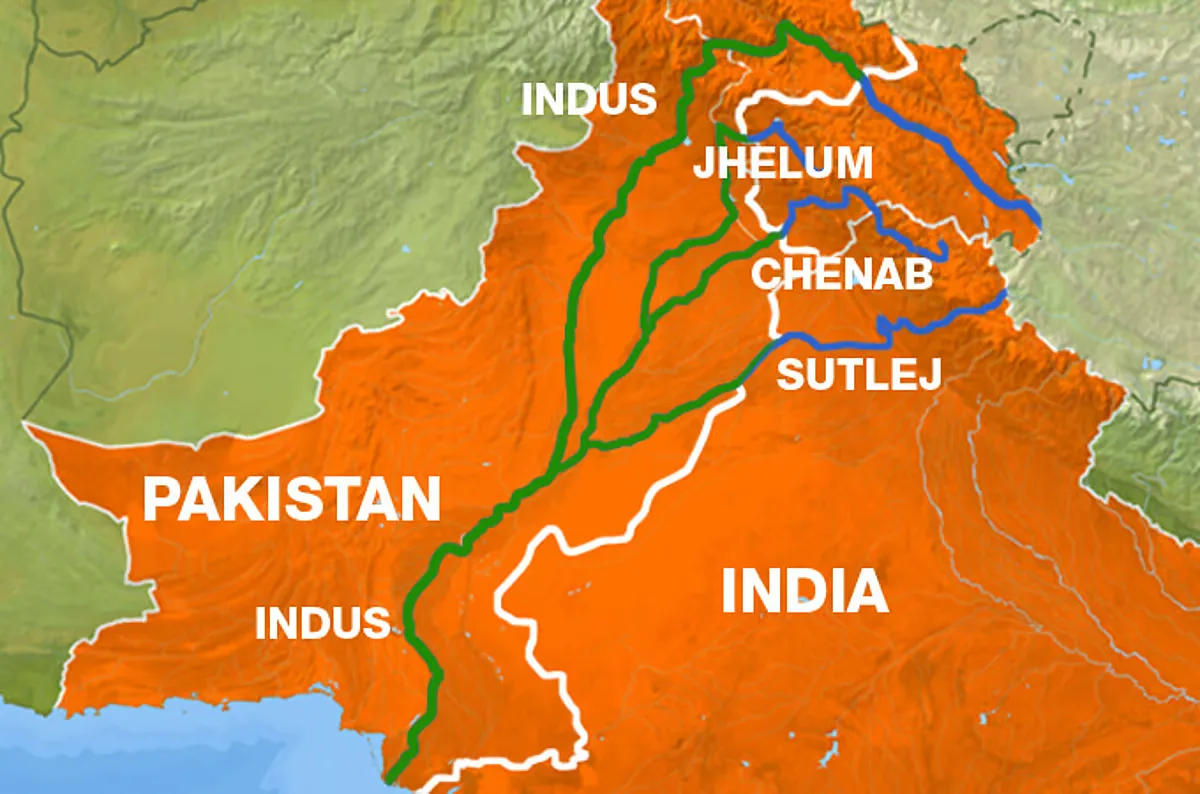
Drawing a Line in Water – Indus Waters Treaty, Terrorism, and International Law
CLAT Gurukul – best online coaching for CLAT
“online coaching for CLAT”, “CLAT Current affairs 2026”, “Current Affairs 2026”
Introduction
International law must be the guiding light even in the darkest moments of geopolitical friction. The recent ruling by the Hague tribunal in favor of Pakistan’s petition under the Indus Waters Treaty (IWT) confirms this. It reiterates that even in a fractured world, treaties must be respected. The sanctity of the IWT, hailed as a diplomatic miracle of 1960, must not be diluted. This decision is a reminder that procedural justice and legal permanence hold nations accountable.
Contrarian View: No Law Without Context
India’s position, however, brings out a deeper truth: law cannot be separated from ground realities. When Pakistan-backed terror attacks kill Indian citizens—most recently in Pahalgam on April 22—India has the right to suspend cooperation. Trust is the foundation of any treaty. If one party uses peace agreements as shields to wage proxy war, is the other bound by legal obligation to maintain cooperation? India rightly placed the Treaty in abeyance, not to violate law, but to highlight that law must align with security realities.
Why in News?
- On June 27, 2025, the Hague-based Permanent Court of Arbitration issued a supplemental ruling regarding the Indus Waters Treaty.
- The ruling rejected India’s decision to unilaterally suspend the Treaty and reaffirmed the court’s jurisdiction, even in India’s absence.
- India called the proceedings illegal, deeming the Treaty in abeyance until Pakistan stops sponsoring cross-border terrorism.
- This has reignited debates around treaty obligations, international arbitration, and the interplay between law and national security.
Point-Wise Summary for CLAT 2026 Aspirants
- Background of Indus Waters Treaty (IWT):
- Brokered by the World Bank in 1960.
- Divided six rivers of the Indus basin—India got unrestricted use of the eastern rivers; Pakistan got the western rivers.
- Survived multiple wars and breakdowns in diplomacy.
- Legal Dispute Before Hague Court:
- Pakistan initiated arbitration over India’s hydro projects, claiming they violated IWT provisions.
- India suspended participation, citing terrorism and sovereignty concerns.
- Hague tribunal ruled that the Treaty remains in effect and India’s suspension is not legally valid.
- India’s Response:
- Rejected tribunal’s authority and called the proceedings “procedurally irrelevant.”
- Asserted that the Treaty stands suspended (in abeyance) until Pakistan halts terror activity.
- Terrorism and Trust:
- India’s stand: Treaties are built on trust, which cannot exist when cross-border terrorism continues.
- The April 22 Pahalgam attack (dozens of Indians killed) cited as trigger for abeyance.
- Strategic and Legal Questions:
- Can treaties survive asymmetric warfare?
- Should a country be bound by legal obligations when the other party violates peace through proxy wars?
- Pakistan’s Position:
- Urged the court to treat the issue as a purely legal matter.
- Denied that terrorism should impact Treaty obligations.
- Accused India of unilateralism and breaking procedural norms.
- Larger Implications for Water Diplomacy:
- Water often described as the “last soft commodity,” deeply tied to peace, agriculture, and security.
- India’s stand signals future hardening of approach on strategic treaties.
- Call for Measured Diplomacy:
- Editorial advocates that India:
- Show firmness but with foresight.
- Utilize infrastructure without violating Treaty.
- Craft diplomatic moves that reinforce conditional justice, not retaliatory breakdown.
- Editorial advocates that India:
- Global Precedent:
- Raises question: Should future treaties allow for abeyance in case of terrorism?
- Highlights a gap in international law—where aggression doesn’t take traditional military forms but hybrid warfare.
Notes on Peculiar Terms (Glossary)
Term | Meaning |
Indus Waters Treaty (IWT) | A water-distribution agreement signed in 1960 between India and Pakistan, mediated by the World Bank. |
Permanent Court of Arbitration (PCA) | An intergovernmental organization in The Hague that provides arbitration for international disputes. |
Abeyance | A state of temporary disuse or suspension; in legal contexts, implies holding something in reserve. |
Proxy War | A conflict where two opposing countries or parties support combatants that serve their interests instead of waging war directly. |
Asymmetric Warfare | A conflict where the parties involved have unequal military resources, and the weaker side uses unconventional tactics (e.g., terrorism). |
Hydro Diplomacy | Diplomatic negotiation involving water-sharing rights and infrastructure use between countries. |
Geopolitics | Global politics influenced by geographical factors like borders, natural resources, and regional power dynamics. |
Legal and Strategic Relevance for CLAT Aspirants
- International Law vs. National Security:
- The editorial underscores the tension between international obligations and domestic threats.
- Raises the question: Are legal obligations absolute or can national security override them?
- Relevance of Treaties in Modern Warfare:
- Can treaties negotiated in the Cold War era withstand 21st-century terrorism?
- What legal remedies exist if one signatory becomes a threat?
- Role of Arbitration:
- PCA’s ruling may be valid legally, but India’s non-participation challenges the principle of consent-based jurisdiction.
- Important for CLAT students to understand principles of international arbitration and its limitations.
- Environmental and Water Laws:
- Water disputes are likely to increase with climate change.
- Understanding IWT helps build knowledge on riparian rights and environmental law—important areas in CLAT legal reasoning.
- Conditional Diplomacy:
- India’s stance introduces the idea of “conditional compliance” in treaty law—following obligations only when foundational trust exists.
Critical Thinking Questions for CLAT Mains
- Should a country remain bound by international law when its national security is at risk?
- Can treaties like the Indus Waters Treaty be amended to include clauses related to terrorism and hybrid warfare?
- Is India’s concept of placing the Treaty “in abeyance” legally sound or diplomatically risky?
- How should India balance legal obligations with strategic autonomy?
Conclusion
The editorial “Drawing a Line in Water” captures the essence of 21st-century international law dilemmas—where treaties signed for peace risk being weaponized in proxy warfare. While the Hague Court may have followed due process, the Indian government’s protest reflects the growing belief that law must reflect lived realities, not idealized abstractions.
For CLAT 2026 aspirants, this is more than just a current affairs story—it’s a gateway to understanding how international law, environmental treaties, and terrorism intersect.




